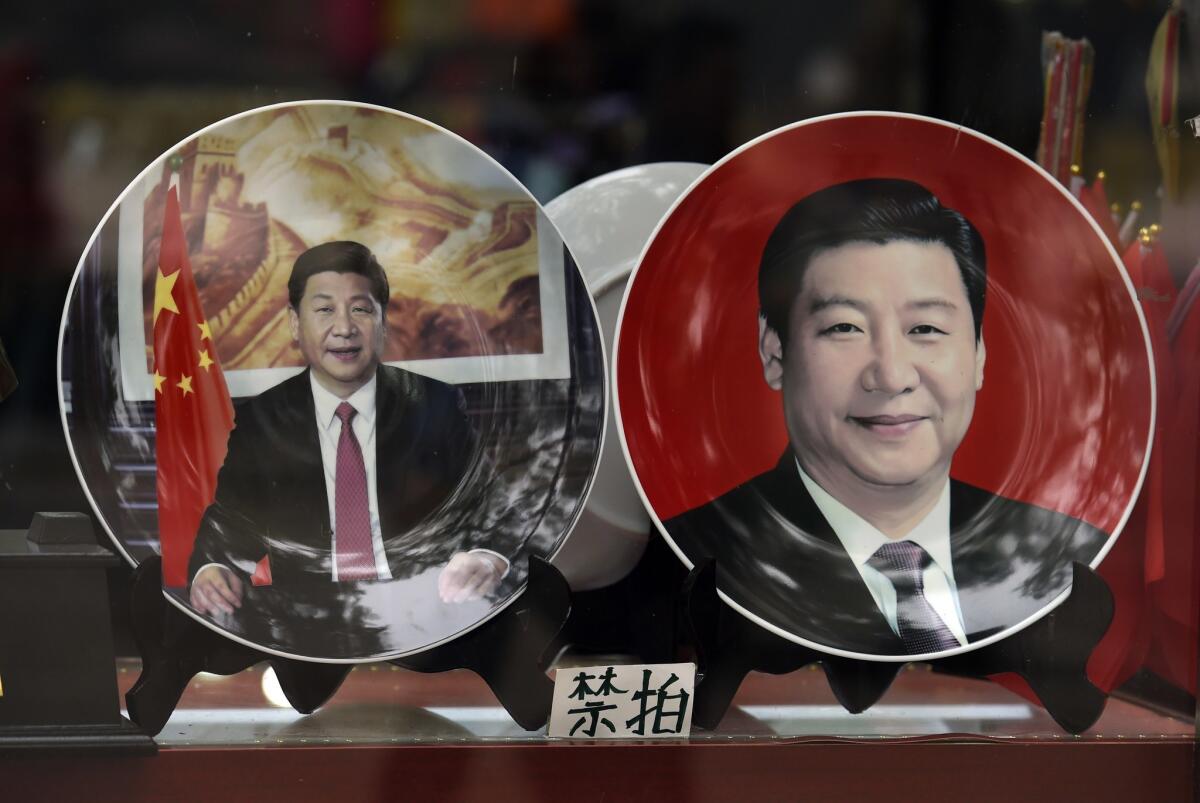Given glimpse into Xi Jinping’s daily life, China goes gaga

Chinese President Xi Jinping eats breakfast before dawn. He speaks in a “bold, down-to-earth manner” and is capable of drawing a room to nod in praise. And the head of state is incredibly diligent: While others are gathering for family dinners or watching TV, Xi is still burning the midnight oil.
These are some of the revelations in an article published Monday in the Shanghai Observer newspaper, a largely state-funded new-media platform founded in January (read the English translation here). Titled “How does Xi Jinping pass the day?” the article has been republished seemingly everywhere in Chinese media, including the home page of the official New China News Agency website.
While many other world leaders’ daily comings and goings are well-publicized to the media and their official residences (like the White House) may be open for public tours, China’s leaders still remain cloaked in a high degree of secrecy -- hence the fanfare over the Shanghai Observer story.
In the article, the reporter follows Xi throughout a busy day at the office. Already working before daybreak, Xi reads his briefing and meets with representatives of the Asian Infrastructure Investment Bank and Tanzanian President Jakaya Mrisho Kikwete. The hagiographer-journalist praises Xi’s speaking style and wisdom, noting how he easily defused a tense moment with Kikwete.
At a time when anger over income inequality and egregious displays of government corruption is simmering, fawning media coverage like this seems aimed at setting Xi apart from his predecessors by making the leader appear more amiable and transparent. With Chinese officials often presented as grand figures by the strictly controlled state media, many Chinese don’t know what their unelected leaders actually do.
“In China, leaders’ work and lives remain mysteries,” said Hu Xingdou, a professor of economics at the Beijing Institute of Technology. “In the past, the more mysterious leaders were, the more unfamiliar they were to people, the more people would worship them,” he said.
But “nowadays, the more unfamiliar you are to people, the more distant you appear,” he said.
A good deal of the article is dedicated to how efficient and hardworking the Chinese leader is. Xi is described as working “at high speed and with great energy,” and “at work both at day and night.” He says he “finds joy in exhaustion” both in the office and at home.
Since Xi took office, his public relations team has been working to present him as someone to whom the average Chinese person can relate. He has been photographed eating an austere dinner with a rural family, ordering steamed buns at a fast-food chain and shooting a video in the secretive compounds of Zhongnanhai. The Hong Kong-based newspaper Ta Kung Pao reported that Xi took a common taxi ride last April -- though the New China News Agency later debunked the story as “fake.”
Most recently, a photo of Xi in Wuhan holding an umbrella, his pants rolled up to keep his cuffs dry, won the country’s top photojournalism prize on Oct. 22. The photo might not seem particularly technically or stylistically notable, but it quickly caught steam on Chinese social media platforms.
Monday’s profile of Xi was published as Beijing is preparing for the upcoming Asia-Pacific Economic Cooperation conference, which will see world leaders including President Obama visit the Chinese capital in November. Already, China’s government has announced a raft of special measures unseen since the 2008 Olympics, designed to present the Chinese capital as a place free of pollution and traffic. Burnishing Xi’s image is another part of the package.
Silbert is a special correspondent.
More to Read
Start your day right
Sign up for Essential California for news, features and recommendations from the L.A. Times and beyond in your inbox six days a week.
You may occasionally receive promotional content from the Los Angeles Times.





